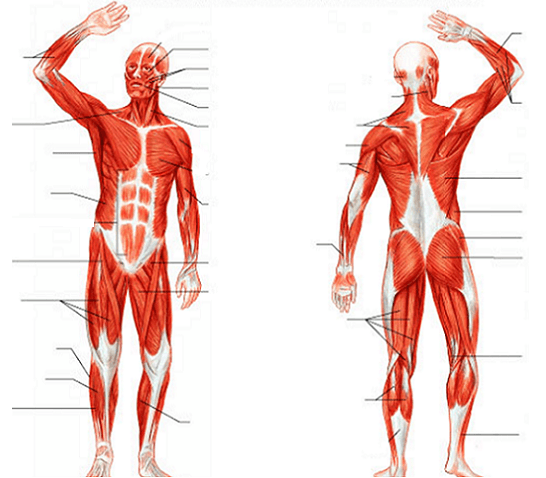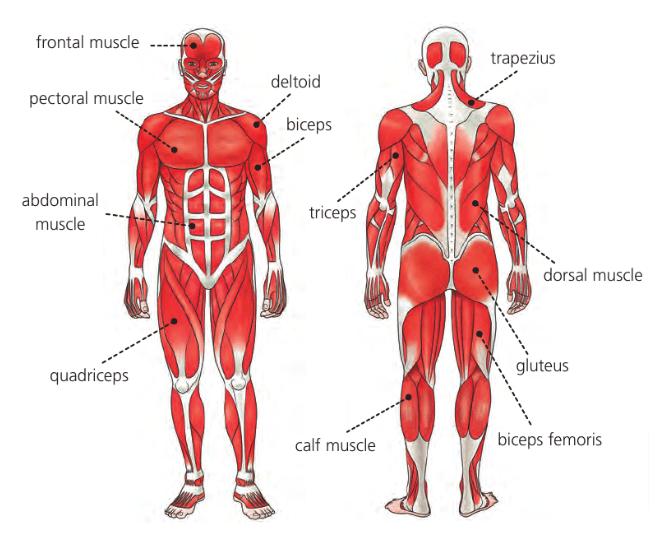How many senses are there? Name them.
Five: sight, smell, hearing, touch, and taste
What covers the tongue?
Taste buds
What is the function of the nervous system?
The nervous system carries messages between the brain and other body systems
What is the peripheral nervous system made up of?
Nerves
How are our bones connected?
Joints
How many muscles does the human body have?
Over 600
Which part of the eye carries signals to the brain?
Optic nerve
Identify number 3.
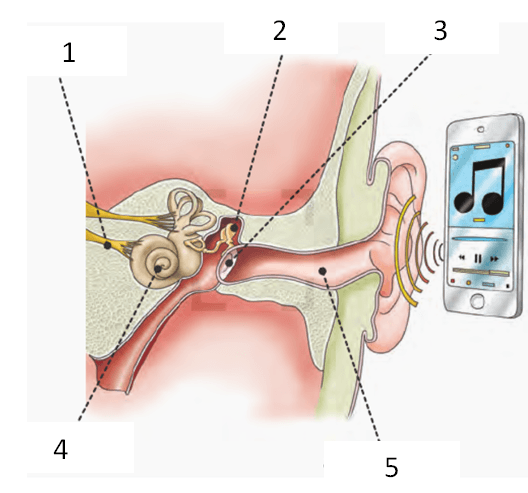
Ear drum
What two parts of the body make up the central nervous system?
Spinal cord and brain
What are nerves made up of?
Neurons
How many types of muscles are there? Name them.
3; skeletal muscles, smooth muscles, and cardiac muscles
How many bones does an adult human skeleton have?
206
What is the purpose of the cochlea? Where can it be found?
The cochlea detects sound vibrations and produces electrical signals. It is found in the inner ear.
What is the top layer of skin called?
Epidermis
What is the function of the spinal cord?
Name the three parts of the brain.
Cerebrum, cerebellum, and brain stem
How many types of bones are there? Name the different types?
3; long bones, flat bones, short bones
Identify the femur. What type of bones is it?
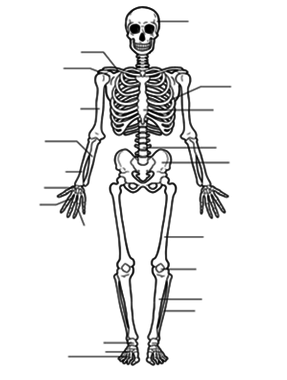
Long bone
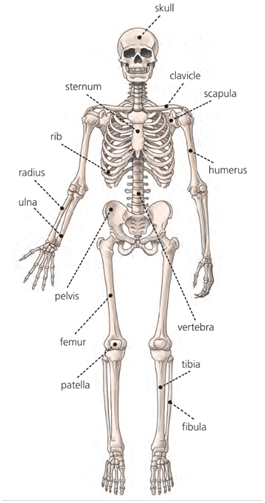
What is the coloured part of the eye called? What is its function?
Iris; it controls the size of the pupil and how much light enters the eye.
Identify number 4. What is its function?
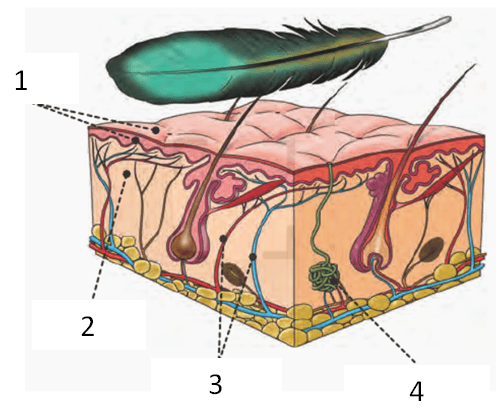
Nerves; they detect sensations
What are the two parts of a neuron? What is the function of each?
Dendrites receive signals
Axons transmit signals
What part of the central nervous system is number 4? What is its function?
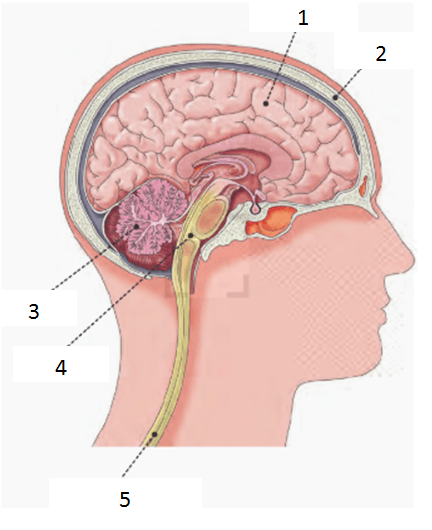
Brain stem; it controls involuntary actions
What type of muscle makes our hearts beat? Is it voluntary or involuntary?
Cardiac muscle; involuntary
Which type of joint allows the most movement? Give an example of this type of joint.
Flexible joints; shoulders and knees
Identify 1 and 2. How do they work together to help us smell?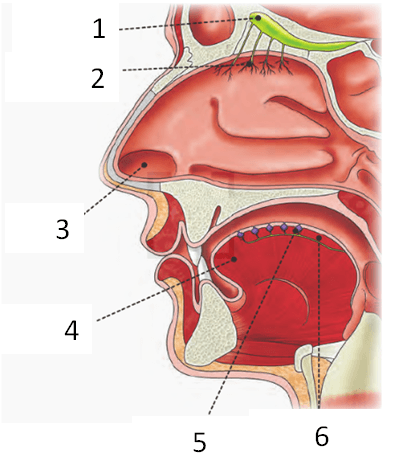
Olfactory bulb (1) and nerve receptors (2). Nerve receptors send electrical signals to the olfactory bulb in the brain.
What part of the eye is number 7? What is its weakness?
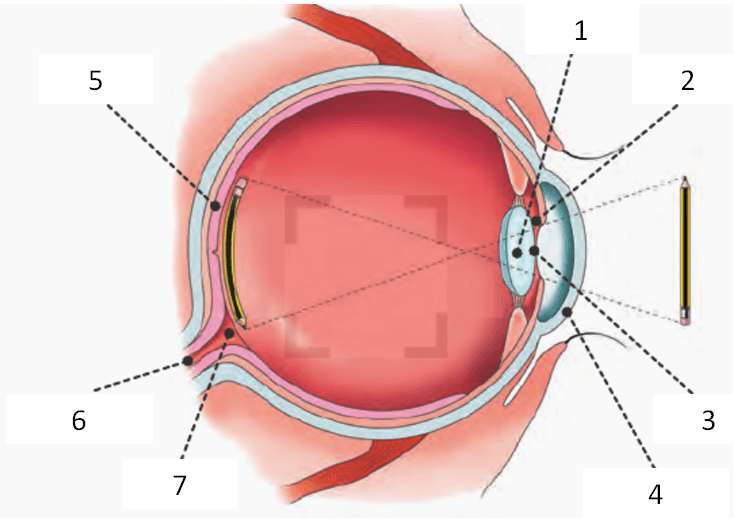
Fovea; it is a blind spot in the eye, because it can not detect light
Explain how sensory neurons, the brain, and motor neurons work together.
Sensory neurons carry signals to the brain, the brain interprets the signals and sends them to motor neurons which send them to the locomotor system.
What parts of the central nervous system are number 1 and 3? What are their functions?
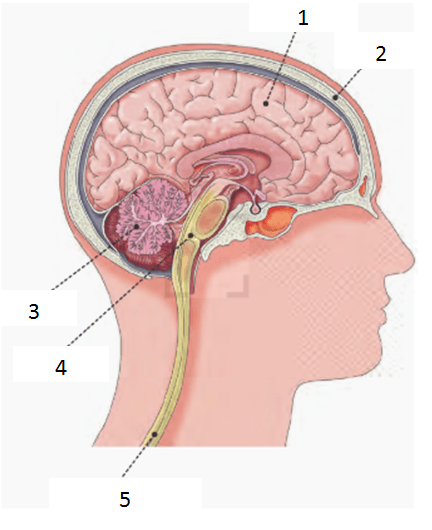
1: Cerebrum controls voluntary actions
3: Cerebellum controls movement, balance, and coordination
Identify the sternum. What is its function and what type of bone is it?
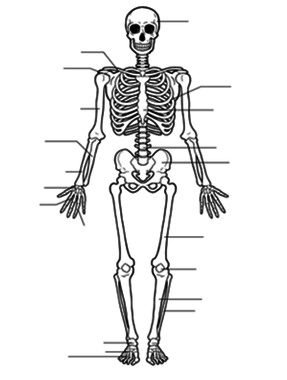
The sternum protects internal organs and is a flat bone
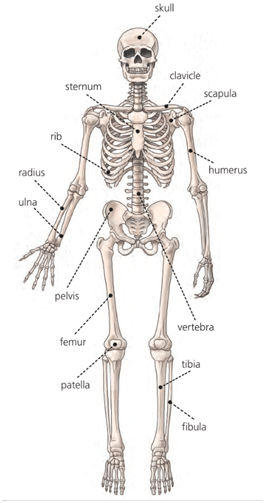
Identify the muscles in the legs (the 3 shown in the book).
